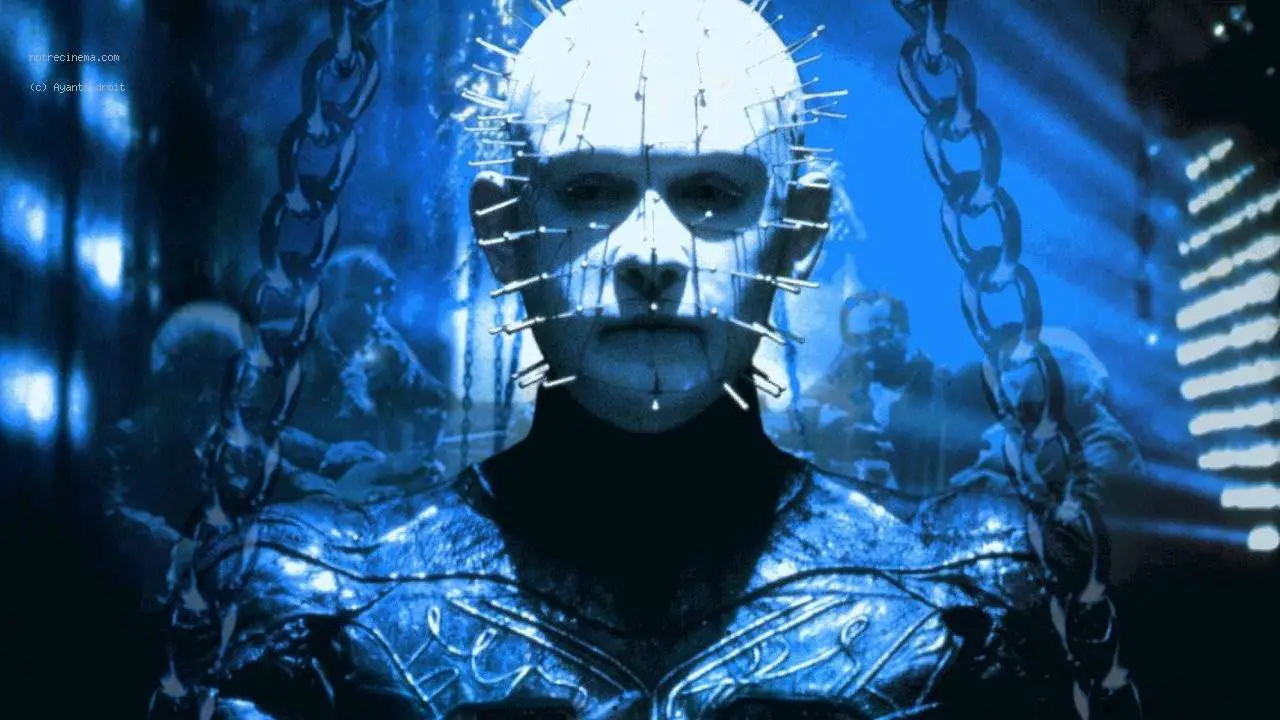Welcome to Script to Pieces! This is a new feature here at Wicked Horror where we will be looking at the best, most interesting and at times most unbelievable horror movies that never happened. Sometimes these will be productions that never came together at all, sometimes they will original incarnations that were completely different from what we wound up with. Each should be fascinating in its own way, because the stories of movies that never see the light of day can sometimes be even more interesting than the stories of those that do.
The Hellraiser franchise is a series of high highs and low lows. The first four each have their own merits, even though the fourth is kind of a jumbled mess with interesting ideas and neither it nor the third come close to touching the genius of the first two. It’s still a huge mythology with virtually endless potential.
Unfortunately, after the fourth film bombed at the box office, that potential was somewhat squashed. While each film in the series had gotten progressively bigger—the second took us directly into Hell, the third unleashed the Cenobites on L.A., the fourth spanned generations across time and space—there seemed to be no hope of that for the fifth, if there was even to be one. At that time, after the release of Hellraiser: Bloodline, it was uncertain if the series would have any kind of continuation at all.
Doug Bradley was willing to come back, but Peter Atkins, who had written the second, third and fourth movies, was done with the franchise. The director of Bloodline, Kevin Yagher, didn’t even want his name on it. Dimension no longer sought the input of franchise creator Clive Barker. Because they refused to even look at his ideas and eventually banned Barker from the set, the author sued to have his name removed from the movie, which marketed itself as “Clive Barker Presents…”

Perhaps most tragically, if Bloodline had been successful—and it truly could have been, judging by the original script—the fifth movie in the franchise could have been something truly interesting, made with the passion and care, as well as the money, that had been put into the first four in order to make them work so well.
The fourth sequel we could have had would have been titled Hellraiser: Hellfire. According to Paul Kane’s amazing franchise companion The Hellraiser Films and Their Legacy, there was a treatment for a fifth movie written by Stephen Jones, working with Michael Marshall Smith. Jones served as Unit Publicist on the first three Hellraiser movies and is an acclaimed editor of short story collections like The Mammoth Book of Best New Horror. He also wrote The Hellraiser Companion, so who better to take the reigns on writing an installment in the franchise?
The treatment sounds undeniably exciting. It would have centered on a corrupt businessman named Jack Credence who is the head of a cult called The Nine. Members of the cult believe him to have gained such success and power through magic, when in actuality it all comes from a deal he made back in the ‘80s with Pinhead himself.
That alone is already interesting to me because it would have taken the franchise back to its roots. The original Hellraiser is a Faustian story to its core, centered on a deal that goes wrong, with Pinhead serving as the Mephistopheles figure. Our hero going up against Credence and The Nine would have been a woman named Christine Freely, who owns an occult bookstore that may have just the tomes she needs to stop Credence’s further rise to power.
More enticingly, the sequel would have brought back several familiar faces from the franchise. Each of the original Cenobites would have made their return, including the Female, Butterball, and the Chatterer. Original heroine Kirsty Cotton would have returned too, now a derelict after spending years institutionalized and losing her whole family. The script would also have brought the series back to its London roots and even used the city itself as a character. The third act would have seen a giant Lament Configuration pattern engulfing the whole city, as the plan becomes clear that Credence is attempting to open a gateway big enough to bring Leviathan—the giant, diamond Hell God from Hellbound—in from the other side.
 That would have continued the upswing of bigger, more ambitious Hellraiser sequels and could not have been more different than the direction the franchise actually took. Instead of any bigger-budgeted sequels, Hellraiser went direct to video after Bloodline failed.
That would have continued the upswing of bigger, more ambitious Hellraiser sequels and could not have been more different than the direction the franchise actually took. Instead of any bigger-budgeted sequels, Hellraiser went direct to video after Bloodline failed.
The actual fifth entry, Inferno, marked the first in a series of contained, low-budget psychological thrillers for Hellraiser as a franchise. While it has its fans, I think it’s not nearly what it could have been, plays itself a bit too obvious and tries to get by with a completely and totally unsympathetic lead. I think the next sequel, Hellseeker, did the same plot better as the main character of that at least thinks that he is good and innocent at the start of the film.
Either way, it’s a little sad to see the direction Hellraiser has taken when there are so many amazing directions it could have gone. It’s a series full of big ideas that will never be realized because the franchise gets less money to work with than Friday the 13th and Halloween.
Halloween is a series that built itself on being contained and low-budget, yet the last sequel in that franchise cost $15 million and the last Hellraiser film cost $300,000. Still, we’ll always be able to dig out some of those great ideas and wonder what might have been.







